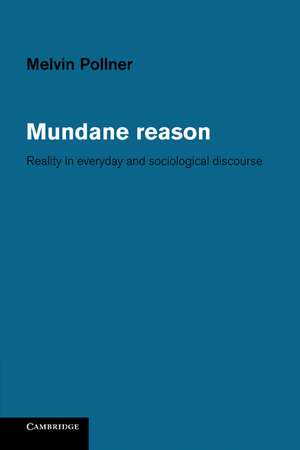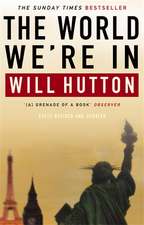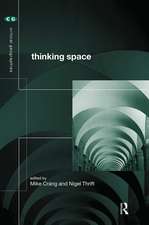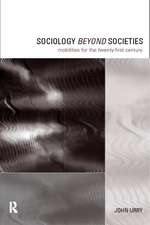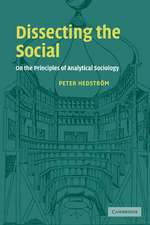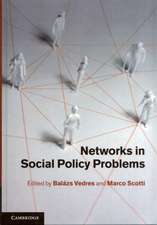Mundane Reason: Reality in Everyday and Sociological Discourse
Autor Melvin Pollneren Limba Engleză Paperback – 9 iun 2010
Preț: 318.93 lei
Nou
Puncte Express: 478
Preț estimativ în valută:
61.03€ • 63.06$ • 50.77£
61.03€ • 63.06$ • 50.77£
Carte tipărită la comandă
Livrare economică 19 martie-02 aprilie
Preluare comenzi: 021 569.72.76
Specificații
ISBN-13: 9780521153126
ISBN-10: 0521153123
Pagini: 200
Dimensiuni: 152 x 229 x 12 mm
Greutate: 0.3 kg
Editura: Cambridge University Press
Colecția Cambridge University Press
Locul publicării:Cambridge, United Kingdom
ISBN-10: 0521153123
Pagini: 200
Dimensiuni: 152 x 229 x 12 mm
Greutate: 0.3 kg
Editura: Cambridge University Press
Colecția Cambridge University Press
Locul publicării:Cambridge, United Kingdom
Cuprins
Preface; Acknowledgements; 1. The problem of mundaneity; 2. Mundane idealizations; 3. The self-preservation of mundane reason; 4. Mundane puzzles and the politics of experience; 5. Mundane autobiography; 6. Mundane reflection; 7. The social construction of mundane reason; Notes; Index.
Descriere
This book assumes that an objective world exists independently of the knower and shows shows that it is historically emergent, culturally contingent and situationally constructed.
